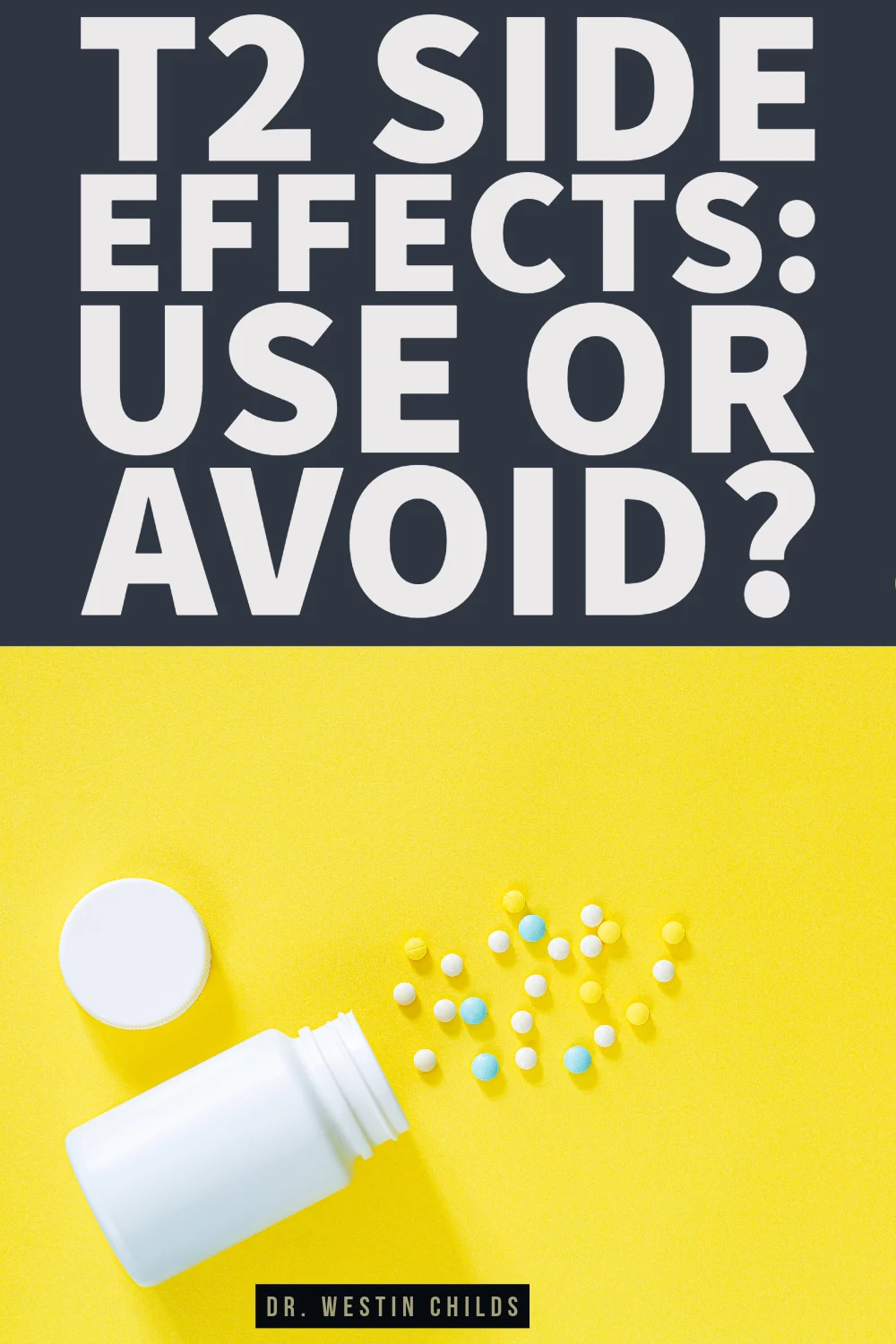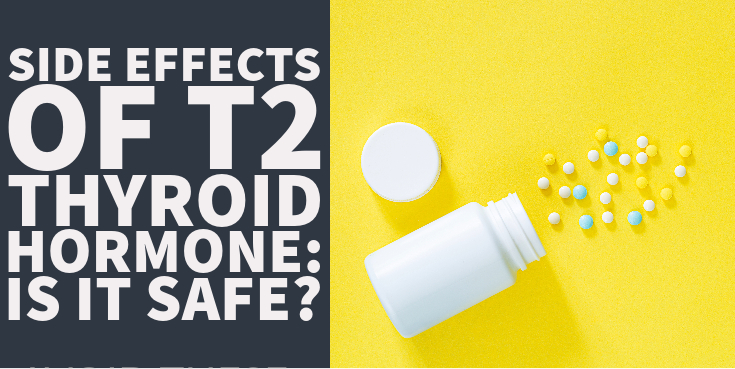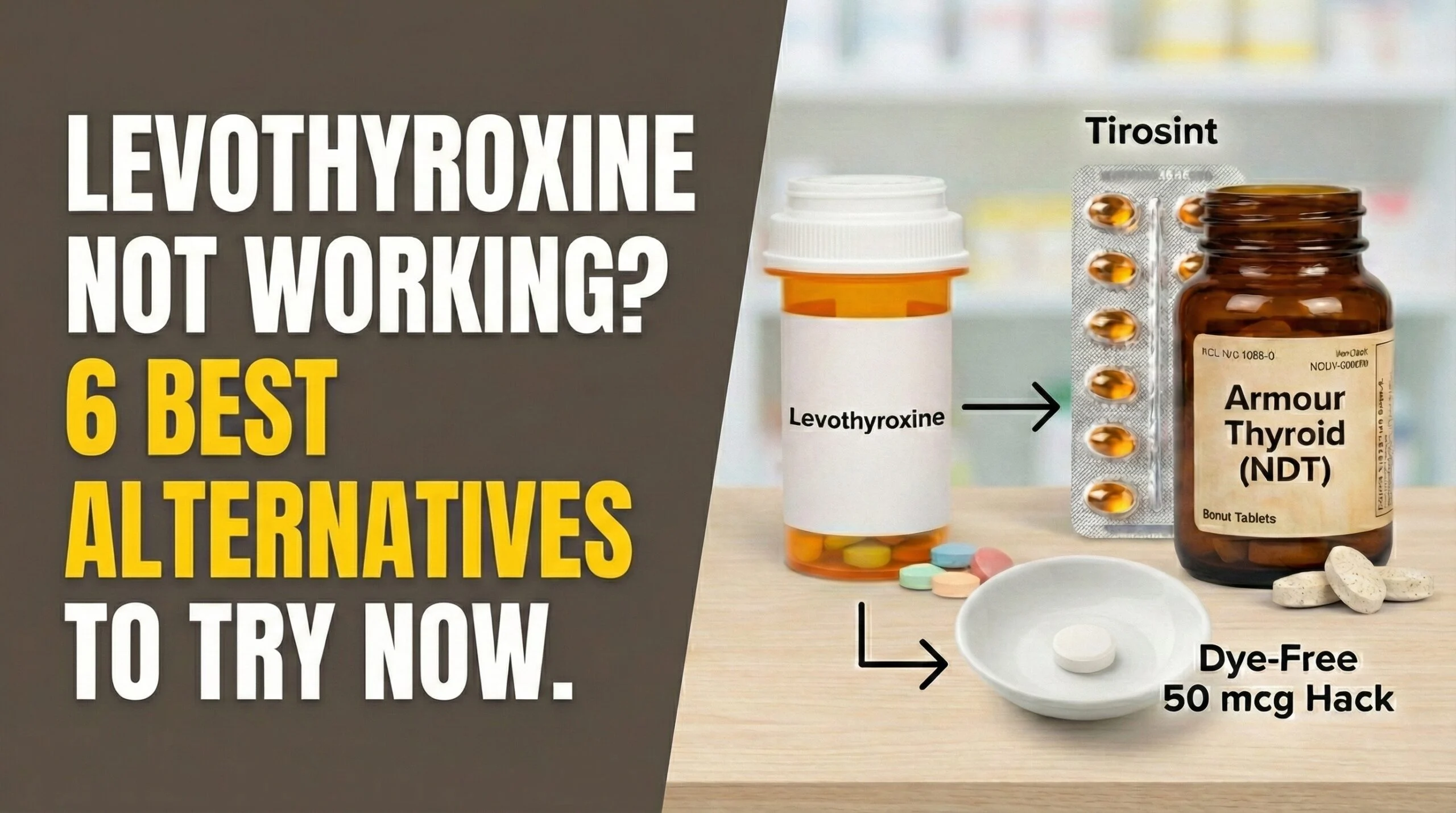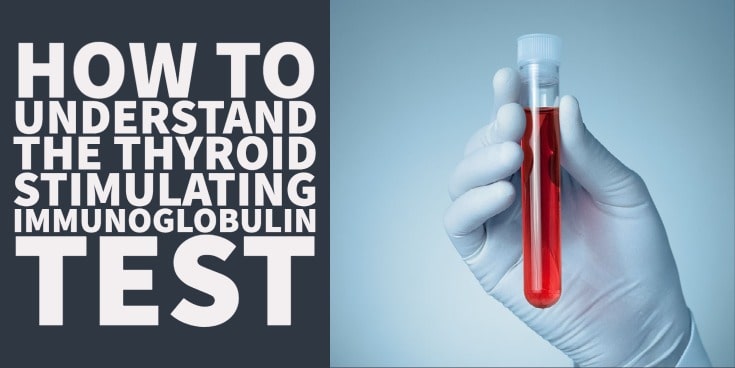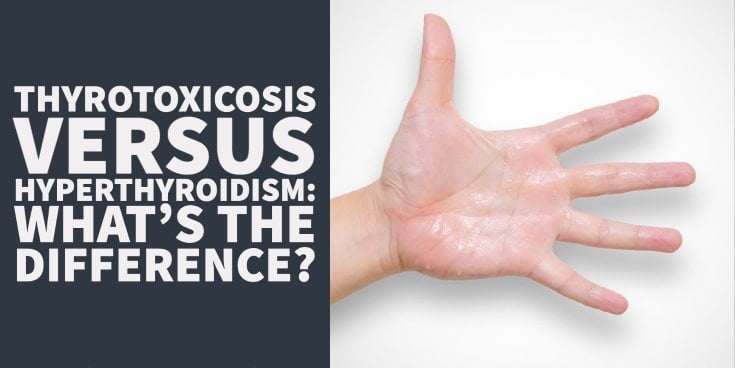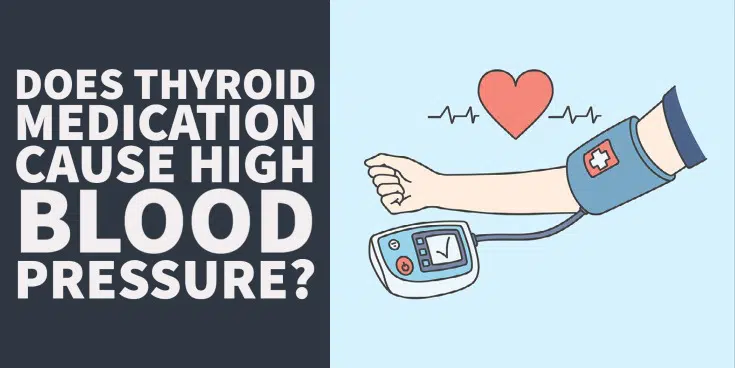T2 is quickly gaining popularity among thyroid patients for its benefits on metabolism, weight management, and cholesterol levels.
And, as a result, a lot of other thyroid patients are taking notice and have been asking questions:
What is T2? Is it safe? What are the side effects?
Well, today, we are going to talk about just that.
Over the last year or so, over 15,000-20,000 thyroid patients have used my T2 supplement so I’ve been able to collect a lot of data about its potential positive and negative side effects.
And it’s these side effects that I want to share with you today so you can determine if T2 is something that you should consider taking.
First, let’s start with the basics:
What is T2 Thyroid Hormone?
What is T2?
T2, known as 3, 5 diiodo-l-thyronine is a thyroid hormone much like T4 and T3.
The primary difference between T2 and these hormones has to do with their function and activity on the thyroid hormone receptor.
T4 (found in levothyroxine and Synthroid) is primarily used as a reservoir hormone for the creation of T3 (1).
T3 (found in Cytomel and liothyronine) is the strongest thyroid hormone and has the most activity on the thyroid hormone receptor (2).
And T2 (found in over-the-counter supplements) seems to enhance the effect of T3 thyroid hormone while also exerting some direct thyroid hormone activity (3).
Each thyroid hormone does something different, which is why I believe that most hypothyroid patients want to take a combination of all 3 if possible.
While this may be the first time you’re hearing about T2, it’s not a new thyroid hormone and it’s been around for decades.
Researchers and scientists have known about T2 for a long time and many of you listening to this have probably taken it without realizing it.
This is because T2 is found in small amounts in NDT thyroid medications like Armour thyroid, NP thyroid, and Adthyza.
It just so happens that over the last 10-15 years, T2 has been the subject of intense research due to its effects on metabolism and fat loss, where it’s being studied as a potential weight loss treatment (4).
Thyroid patients who want better thyroid hormone management and better weight loss find the prospect of using T2 very enticing.
Is T2 Thyroid Hormone Safe?
Whenever someone hears about T2 for the first time, they almost reflexively want to know whether or not it’s safe.
They assume that because they haven’t heard about it, there must be something wrong with it.
Most doctors aren’t aware of it simply because it’s not really discussed by pharmaceutical companies and because the research on this hormone is relatively new, not because it doesn’t work or because it isn’t safe.
Believe it or not, it’s very difficult for doctors to keep up with the latest research which is why most of them are, on average, 17 years behind (5).
But as to the question of safety, here’s what we know:
#1. For starters, there’s no reason to automatically assume that T2 is harmful because we know it’s created naturally by the body.
So even as you are listening to this right now, your body is creating some amount of T2 which is doing its job.
#2. Thyroid patients have been using T2 for over 70 years because it’s naturally found in NDT thyroid medications.
If there was a safety problem with T2, we would have seen it by now.
#3. Over-the-counter T2 supplements have been available for a long time as well.
Until recently, these were primarily marketed at bodybuilders and included in weight loss supplements because of T2’s effect on metabolism.
Again, if there were a problem, we would have seen it by now.
When you consider these factors, plus available research studies, we can say with a high degree of certainty that T2 is not harmful.
What are the Side effects?
Having said that, no hormone and no medication is completely free of side effects and T2 is no exception.
While most people who take it only experience positive side effects, there are some who experience negative side effects.
And like other thyroid hormones, the side effects of T2 are primarily dose-dependent.
In other words, the more you take, the more likely you are to experience side effects.
This is because the body is used to some amount of T2 so it knows how to metabolize and handle it.
This is different from pharmaceutical medications because many of these compounds are completely foreign to the body, so in some cases, any amount is enough to cause side effects.
That’s typically not the case with T2, as most thyroid patients who take it are able to adjust their dose to experience positive side effects without negative ones.
Based on my experience helping over 10,000 thyroid patients use T2, here’s what I’ve found.

Roughly 70-75% of thyroid patients see some sort of positive experience.
About 10-15% experience no discernable benefit.
And about 10-15% experience some minor negative symptoms.
As far as positive symptoms go, thyroid patients have reported the following:
- Improved body temperature
- Easier weight loss
- More energy
- Feeling more balanced
- And better thyroid symptom control overall
Because T2 primarily targets metabolism and cellular ATP production, this is exactly what we would expect.
As far as negative symptoms go, some thyroid patients have reported the following:
- Jittery sensation
- Dizziness
- Nervous energy
- Increased heart rate
- Palpitations
- Insomnia
- And one person reported hair loss
These side effects tend to be quite rare and are typically dose-dependent, meaning they can be managed simply by reducing how much you are taking.
And because they all go away once you stop taking T2, there’s pretty much no harm in giving it a try.
Will T2 Cause Heart Problems or Heart Enlargement?
Some providers and thyroid experts have been making the claim that T2 is unsafe because there are studies showing that it can cause cardiac enlargement.
Knowing this, doesn’t it mean that T2 should be avoided at all costs?!
Nah, because when you look at the study citing this side effect, it becomes clear why it occurred.
First off, here’s the study that these providers are citing: https://jme.bioscientifica.com/view/journals/jme/19/2/137.xml
Which is also referenced here: https://www.ncbi.nlm.nih.gov/pmc/articles/PMC4272398/
But let’s break this down because it’s really not concerning once you understand how this study was created and what it really showed.
We know a fair amount about T2 thyroid hormone and how it works, but we don’t know exactly how powerful it is, especially when compared to other thyroid hormones like T3.
So the researchers of this study devised a way to compare a supraphysiologic dose of T3 to a supraphysiologic dose of T2 with the intent to compare outcomes.
For those who may be unaware of the language used here, the term supraphysiologic just means a dose that is much higher than what would be considered normal.
Let me make this clear:
The researchers intentionally used hyperthyroid doses of BOTH hormones in order to assess how powerful T2 is compared to T3.
And they found what you’d probably expect:
Supraphysiologic doses of T3 (those doses that are much higher than what you’d find normally occurring in the body) resulted in hyperthyroid-like symptoms including liver problems, heart problems, and more.
In other words, they forcibly made the mice hyperthyroid and saw exactly what they would expect.
Then they took the dose they used of T3 to get those side effects and multiplied it by 80 (no, that’s not a typo), and evaluated what happened in the mice.
They found that the dose of T2, which was 80 times that of T3, resulted in all of the same symptoms, including the symptom of cardiac enlargement.
But does this surprise anyone?
It shouldn’t.
You would get the exact same results if you used a similar dose of T4 (levothyroxine) or any other thyroid hormone.
So did this study show that T2 causes heart problems? Well, technically, but only if the dose used is 80 times that of what is already considered an already mega dose of T3.
The only real conclusion you can draw from this study is that T2 is a powerful thyroid hormone that definitely exerts an impact on the body.
But, just like any other thyroid hormone that exists, if used irresponsibly, it can lead to problems.
Before we move on, let’s put some of this into perspective so I can give you an idea of how truly ridiculous this claim is.
If we look at humans (which is what we care about, not mice), the standard dose of T3 is usually around 5 mcg to 20 mcg.
This type of dose isn’t even considered to be supraphysiologic, it’s actually considered to be physiologic, but let’s use it just to illustrate the point.
If we use the same doses of T2 used in the study cited above, then that means if you were taking 5 mcg of T3, you’d need 400 mcg of T2 to get a roughly equal impact on your body as that small dose of T3.
If you were taking 20 mcg, the dose of T2 you’d need to get there would be 1,600 mcg.
And even at these high doses (400 mcg to 1,600 mcg), you still wouldn’t push yourself into the hyperthyroid range because we know that the 5-20 mcg of T3 doses do NOT cause this issue.
If you consider that most people who take T2 are using a dose of 100 mcg (200 mcg at most) per day, they are about 1/4 of that 400 mcg dose (which is on the lower end).
And they are even farther away from the 1,600 mcg dose.
Is there any chance of experiencing cardiac enlargement at these doses? No way.
I’ve personally seen one person experience cardiac enlargement when using T3 and that symptom didn’t start to become apparent until T3 dosing hit over 500 mcg per day (I didn’t provide this dose, they came to me on this dose and we lowered it).
That means, in reality, you’d probably need a truly astronomical dose of T2 to experience cardiac enlargement, at least based on the only case of true cardiac enlargement that I’ve seen from T3 dosing.
Not only would this not be economical, but you’d basically have to take an entire bottle of Essential T2 daily for 4-8 weeks to get there.
The bottom line? T2 is no more likely to cause cardiac enlargement than T3 is, and neither will cause problems if they are dosed correctly.
What’s a Safe dose?
Since most side effects (both positive and negative) are dose-dependent, it’s important to talk about how much should be used.
To do that, we have to use a combination of anecdotal experience as well as some information from available studies.
Right now, we know that a safe dose of T2 is anything less than 300 mcg per day.
Problems start to arise when dosing increases above 300mcg and serious problems start to arise when dosing exceeds 800mcg per day (6).
Fortunately, it’s very difficult to get to these doses, because most supplements are dosed in the 100 mcg range so you’d need to take something like 8 capsules per day for months at a time to experience these problems.
Avoiding toxicity is pretty easy, but what’s difficult is figuring out the minimum effective dose that should be taken.
In a perfect world, I’d be able to tell you exactly how much T2 you should take so that it provides therapeutic benefits without causing any issues whatsoever just like your thyroid gland would do if it were healthy.
Unfortunately, we don’t have good data to give us this information so we need to rely on patient experience for now.
Based on my experience, I’ve found that most thyroid patients experience a therapeutic benefit when taking somewhere around 100 to 200 mcg per day.
There are definitely some thyroid patients who are just really sensitive to thyroid hormones and can probably get by with T2 dosing less than 25 mcg/day, but most people will need more.
And, right now, I would recommend staying away from dosing in the 300 mcg/day range just because that’s too close to the safety cutoff.
Who Should Use T2?
So should you give T2 a try?
That’s the question that thyroid patients ask me all of the time and here’s my response:
It depends on how you are feeling and what you are trying to achieve!
If you are someone who is feeling lousy right now and still experiencing thyroid symptoms despite taking thyroid medication, then, yeah, taking T2 is probably a good idea.
Taking T2 in this setting will likely make your thyroid medication more effective and help you better manage your symptoms.
This, I think, is the best use case for taking T2.
To round out a thyroid medication regimen and more closely match the thyroid hormone production that the healthy gland would provide if it were working.
Another reason to use T2 is if you are a thyroid patient struggling to lose weight.
Given T2’s impact on metabolism, cellular ATP production, muscle health, and heat production, it makes a lot of sense to use it in this setting as well.
T2 isn’t a magical weight loss pill, but it can enhance your metabolism and make your weight loss efforts (like diet and exercise) much more effective.
If you are interested in learning more about how T2 can help you lose weight, then I’d recommend checking out this article next.
And by the way, if you want to get my recommended T2 supplements, you can see the capsule form I recommend here and the cream form that I recommend here.
Now I want to hear from you:
Is this the first time you have heard about T2?
Have you heard about it but been scared to try it due to the side effects?
Are you thinking about giving it a try? Why or why not?
Scientific References
#1. ncbi.nlm.nih.gov/books/NBK537039/#:~:text=The thyroid gland is responsible,as the liver and kidneys.
#2. ncbi.nlm.nih.gov/pmc/articles/PMC9646642/
#3. ncbi.nlm.nih.gov/pmc/articles/PMC4272399/
#4. pubmed.ncbi.nlm.nih.gov/26593437/
#5. ncbi.nlm.nih.gov/pmc/articles/PMC3241518/
#6. ncbi.nlm.nih.gov/pmc/articles/PMC4272398/
